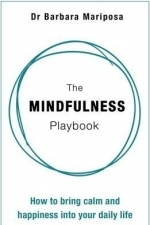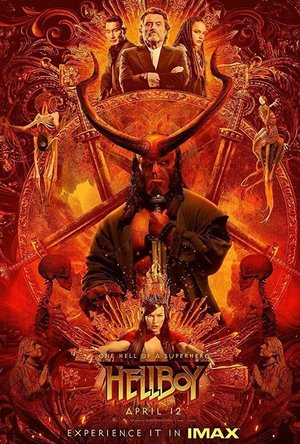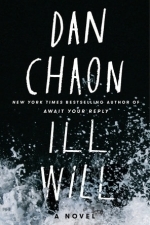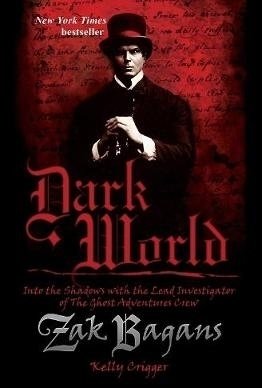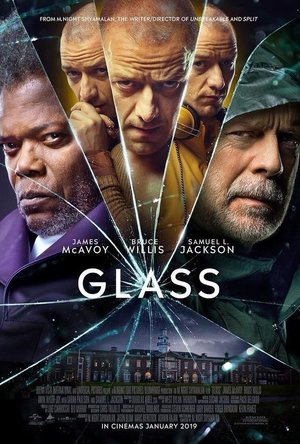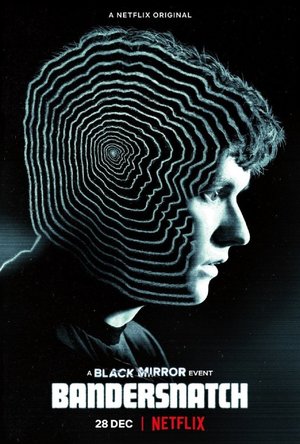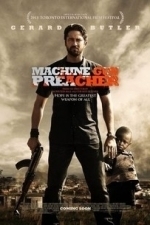Search
Search results
Hazel (1853 KP) rated The Mindfulness Playbook in Books
Dec 23, 2017
I received this book for free through Goodreads First Reads.
Discover how to become healthier, happier, and more resilient with The Mindfulness Playbook by psychology expert Dr Barbara Mariposa. Written with the general public in mind, Mariposa tackles thoughts, feelings and situations that crop up in everyday life and provides effective coping strategies that can be employed anytime, anywhere. Full of inspiring solutions and practical skills, this book advises and supports as readers bring calm and happiness back into their lives. “By engaging with the content of this book, you will learn unique tools and skills that can bring you greater energy, freedom and clarity.”
Mindfulness is about living in the moment rather than dwelling on the past or worrying about the future. By regularly employing mindfulness, life, in theory, should become much simpler. Unfortunately, many people suffer from anxiety and depression; therefore, mindfulness can be a difficult concept to tackle. Mariposa breaks down the book into eight units and explains simple, proven techniques that, with daily practice, anyone can make a habit of using.
Dr Barbara Mariposa developed the Mind Mood Mastery programme and uses many of her ideas from this as the basis of her book. Each unit is broken down into manageable chunks that are easy to interpret and are relevant to the 21st century. Each unit contains a motto, which expresses the theme of the information provided and a task for people to do in their own time. There are also pages containing sections to write answers to questions Mariposa poses throughout the text.
Many of the tools Mariposa introduces can be shortened to acronyms, making them easy for people to remember in moments of anxiety or stress. One example is “BELL- Breathe. Expand. Listen. Look.” By remembering the letters of this power tool, it can be brought to mind in a difficult situation. It reminds the person to take a deep breath, notice what is going on around them, listen to what they can hear, and focus on something they can see. This helps to stop thoughts from spiralling into the past or future and causing lots of anxiety.
The problem with the term “mindfulness” is it has become an overused term and often replaces the word “relaxing”, for example, on colouring books. Dr Mariposa keeps to the scientific definition of the word (a mental state achieved by focusing one's awareness on the present moment, while calmly acknowledging and accepting one's feelings, thoughts, and bodily sensations, used as a therapeutic technique) and is sympathetic to the reader, acknowledging that life can be hard and mindfulness can be difficult to maintain.
Within each unit is a section dubbed “The Science Bit”, which, it goes without saying, contains scientific information. Mariposa explains in layman’s terms how the brain works and what causes anxiety and depression. She also demonstrates with diagrams how to rewire the brain and alter thought processes. It is interesting to learn that the brain physically changes shape as mindfulness techniques are practised.
For those who want a simple, easy to follow book about mindfulness, The Mindfulness Playbook is definitely the one to purchase. The balance between science and everyday life is on point, and the language style is appropriate for all readers. Quotes from famous names break up the text into manageable sections and it is easy to dip in and out of the book as needed. Dr Barbara Mariposa has produced a superb self-help guide and, with hope, it will help everyone who reads it.
Discover how to become healthier, happier, and more resilient with The Mindfulness Playbook by psychology expert Dr Barbara Mariposa. Written with the general public in mind, Mariposa tackles thoughts, feelings and situations that crop up in everyday life and provides effective coping strategies that can be employed anytime, anywhere. Full of inspiring solutions and practical skills, this book advises and supports as readers bring calm and happiness back into their lives. “By engaging with the content of this book, you will learn unique tools and skills that can bring you greater energy, freedom and clarity.”
Mindfulness is about living in the moment rather than dwelling on the past or worrying about the future. By regularly employing mindfulness, life, in theory, should become much simpler. Unfortunately, many people suffer from anxiety and depression; therefore, mindfulness can be a difficult concept to tackle. Mariposa breaks down the book into eight units and explains simple, proven techniques that, with daily practice, anyone can make a habit of using.
Dr Barbara Mariposa developed the Mind Mood Mastery programme and uses many of her ideas from this as the basis of her book. Each unit is broken down into manageable chunks that are easy to interpret and are relevant to the 21st century. Each unit contains a motto, which expresses the theme of the information provided and a task for people to do in their own time. There are also pages containing sections to write answers to questions Mariposa poses throughout the text.
Many of the tools Mariposa introduces can be shortened to acronyms, making them easy for people to remember in moments of anxiety or stress. One example is “BELL- Breathe. Expand. Listen. Look.” By remembering the letters of this power tool, it can be brought to mind in a difficult situation. It reminds the person to take a deep breath, notice what is going on around them, listen to what they can hear, and focus on something they can see. This helps to stop thoughts from spiralling into the past or future and causing lots of anxiety.
The problem with the term “mindfulness” is it has become an overused term and often replaces the word “relaxing”, for example, on colouring books. Dr Mariposa keeps to the scientific definition of the word (a mental state achieved by focusing one's awareness on the present moment, while calmly acknowledging and accepting one's feelings, thoughts, and bodily sensations, used as a therapeutic technique) and is sympathetic to the reader, acknowledging that life can be hard and mindfulness can be difficult to maintain.
Within each unit is a section dubbed “The Science Bit”, which, it goes without saying, contains scientific information. Mariposa explains in layman’s terms how the brain works and what causes anxiety and depression. She also demonstrates with diagrams how to rewire the brain and alter thought processes. It is interesting to learn that the brain physically changes shape as mindfulness techniques are practised.
For those who want a simple, easy to follow book about mindfulness, The Mindfulness Playbook is definitely the one to purchase. The balance between science and everyday life is on point, and the language style is appropriate for all readers. Quotes from famous names break up the text into manageable sections and it is easy to dip in and out of the book as needed. Dr Barbara Mariposa has produced a superb self-help guide and, with hope, it will help everyone who reads it.
BankofMarquis (1832 KP) rated Hellboy (2019) in Movies
Apr 14, 2019
Oh...hell, no!
HELLBOY?!? HELL NO!
I would imagine that about 90% of my readership just got what they needed out of my review with that first line and have moved on. For the rest of you, I will now explain why this reboot of HELLBOY is now the "leader in the clubhouse" for worst picture of 2019.
I was pleasantly surprised by the 2004 Guillermo del Toro helmed and written HELLBOY and was even more surprised by how good the del Toro written and helmed HELLBOY II: THE GOLD ARMY (2008) was. I think that this was because there was a driving force - and vision - from a true auteur and was a perfect combination of material and artistic staff - including Ron Perlman in the title role.
This version of HELLBOY has none of that. No vision, no driving force and a "B" performance by David Harbour in the title role. It feels like what it is - a cash grab. I blame the studio who produced this film - Summit Entertainment - for "going on the cheap" on this one.
First off, they tapped a "B Movie" Director, Neil Marshall to Direct this thing. He is known for such artistic successes as DOOMSDAY and THE DESCENT - horror flicks that were heavy on gore, short on characters and plot - and that is what he brought to this film. Why worry about characters, plot or any kind of engaging features (including Special FX) when you can show, yet again, a body getting torn apart and blood spurting all over the screen.
The studio also skimped on the performers. Instead of Perlman, Selma Blair, John Hurt and Doug Jones you get David Harbour, Daniel Dae Kim, Mila Jovovich and a sleep-walking, just give me my paycheck, Ian McShane. It's like watching the "road company" of a Broadway show. While the actors are game (with the notable exception of McShane), they are "B picture" actors, much like the Director.
And...much like the special FX. I knew, going in, that the early word on this film was not good, but that never stops me. I like to make up my own mind, so I thought I'd "pony up" for the IMAX experience to, at least, see the CGI and FX on as large a screen with as good a sound system as possible. I shouldn't have bothered, for the CGI and FX were mediocre (at best) and all the big screen and sound did was emphasize how low quality the CGI was.
And...finally...the pacing of this film is problematic, at best. This is certainly a film that was written and edited within an inch of it's life for the "short attention span" audience of today. The prevailing theory was "why linger on a plot or a character or a moment when we can quick cut to another body getting pulled in two and watch a plume of blood spurt out in a giant arc)."
There are 2 scenes in the end credits to set up the next film(s) in this series. Films that I seriously doubt will be made. If they are, I hope they pump some more money into the budget and get a creative team with some artistic vision.
A swing and a miss.
Letter Grade: C (and I'm being generous)
4 stars (out of 10) and you can take that to the Bank(ofMarquis)
I would imagine that about 90% of my readership just got what they needed out of my review with that first line and have moved on. For the rest of you, I will now explain why this reboot of HELLBOY is now the "leader in the clubhouse" for worst picture of 2019.
I was pleasantly surprised by the 2004 Guillermo del Toro helmed and written HELLBOY and was even more surprised by how good the del Toro written and helmed HELLBOY II: THE GOLD ARMY (2008) was. I think that this was because there was a driving force - and vision - from a true auteur and was a perfect combination of material and artistic staff - including Ron Perlman in the title role.
This version of HELLBOY has none of that. No vision, no driving force and a "B" performance by David Harbour in the title role. It feels like what it is - a cash grab. I blame the studio who produced this film - Summit Entertainment - for "going on the cheap" on this one.
First off, they tapped a "B Movie" Director, Neil Marshall to Direct this thing. He is known for such artistic successes as DOOMSDAY and THE DESCENT - horror flicks that were heavy on gore, short on characters and plot - and that is what he brought to this film. Why worry about characters, plot or any kind of engaging features (including Special FX) when you can show, yet again, a body getting torn apart and blood spurting all over the screen.
The studio also skimped on the performers. Instead of Perlman, Selma Blair, John Hurt and Doug Jones you get David Harbour, Daniel Dae Kim, Mila Jovovich and a sleep-walking, just give me my paycheck, Ian McShane. It's like watching the "road company" of a Broadway show. While the actors are game (with the notable exception of McShane), they are "B picture" actors, much like the Director.
And...much like the special FX. I knew, going in, that the early word on this film was not good, but that never stops me. I like to make up my own mind, so I thought I'd "pony up" for the IMAX experience to, at least, see the CGI and FX on as large a screen with as good a sound system as possible. I shouldn't have bothered, for the CGI and FX were mediocre (at best) and all the big screen and sound did was emphasize how low quality the CGI was.
And...finally...the pacing of this film is problematic, at best. This is certainly a film that was written and edited within an inch of it's life for the "short attention span" audience of today. The prevailing theory was "why linger on a plot or a character or a moment when we can quick cut to another body getting pulled in two and watch a plume of blood spurt out in a giant arc)."
There are 2 scenes in the end credits to set up the next film(s) in this series. Films that I seriously doubt will be made. If they are, I hope they pump some more money into the budget and get a creative team with some artistic vision.
A swing and a miss.
Letter Grade: C (and I'm being generous)
4 stars (out of 10) and you can take that to the Bank(ofMarquis)
Forced premise (2 more)
Storytelling & writing that drives you insane
Not interesting
You'll probably love it or hate it
Dustin Tillman is a psychologist in Ohio; he's married with two sons and rarely even thinks about the horrific incident of his childhood, when his adopted brother, Rusty, murdered Dustin's parents and his aunt and uncle. Dustin was just a child then, and his brother was arrested largely on the testimony of Dustin and his cousin Kate and the 1980s' fears over satanism. But now Dustin learns that Rusty is being released from prison; his appeal has been granted, and his verdict overturned based on DNA evidence. Meanwhile, Dustin is struggling with one of his patients, Aqil, a former police officer who believes there is a link among a group of drunken college boys who have died by drowning. As more and more things start going wrong in Dustin's life, he gets drawn into Aqil's paranoia-- and he threatens to bring down his family with him.
This book had an interesting premise: linking two sets of crimes in the past and present, but I felt like that premise was a little forced/falsified, and I never got into the book, or the characters. As a reader, you'll probably find the way it's written either brilliant or incredibly irritating, and I fell squarely into the irritating camp. There are very abrupt chapter switches between the present and the past that are quite annoying, making it difficult to tell exactly where you are in time. The changes in point of view aren't as bad, allowing you to hear from Dustin, his son, and others, but it still gets confusing quickly. (Sidebar: doesn't anyone just tell a linear story from one person's point of view anymore?)
Even more, the story is written quite like the characters think--which is fine in theory--for instance, this includes Dustin's tendency to just stop mid-sentence, something his family teases him about. After a bit you get somewhat used to the random sentences that end mid-thought, or the weird white spaces, but it's still strange. Other parts are the story are split into two or three parts on a page and told almost in parallel, causing you to flip back and forth to read each set. I never was quite sure of the point of that. Yes, people in the novel are going crazy and on drugs. I could get that concept and not have to flip back and forth constantly to read chunks of the story. It's one of those storytelling devices that, to me, could be amazing, but just winds up driving you slightly insane.
This novel is also very dark. Again, that's fine. I just finished The Roanoke Girls, which was incredibly dark, and loved it. But this one: I just didn't find it that interesting. I found myself finishing it more out of a vague curiosity and duty than anything else. I figured out one of the main plot points pretty on and wasn't engaged with any of the characters. Then, after all of this, the ending is awful and vague, and there's no resolution, and I found myself just throwing the whole thing down in disgust. Definitely not one of my favorites. I can see the potential for others, but it wasn't for me.
I received a copy of this novel from the publisher and Netgalley (thank you) in return for an unbiased review.
This book had an interesting premise: linking two sets of crimes in the past and present, but I felt like that premise was a little forced/falsified, and I never got into the book, or the characters. As a reader, you'll probably find the way it's written either brilliant or incredibly irritating, and I fell squarely into the irritating camp. There are very abrupt chapter switches between the present and the past that are quite annoying, making it difficult to tell exactly where you are in time. The changes in point of view aren't as bad, allowing you to hear from Dustin, his son, and others, but it still gets confusing quickly. (Sidebar: doesn't anyone just tell a linear story from one person's point of view anymore?)
Even more, the story is written quite like the characters think--which is fine in theory--for instance, this includes Dustin's tendency to just stop mid-sentence, something his family teases him about. After a bit you get somewhat used to the random sentences that end mid-thought, or the weird white spaces, but it's still strange. Other parts are the story are split into two or three parts on a page and told almost in parallel, causing you to flip back and forth to read each set. I never was quite sure of the point of that. Yes, people in the novel are going crazy and on drugs. I could get that concept and not have to flip back and forth constantly to read chunks of the story. It's one of those storytelling devices that, to me, could be amazing, but just winds up driving you slightly insane.
This novel is also very dark. Again, that's fine. I just finished The Roanoke Girls, which was incredibly dark, and loved it. But this one: I just didn't find it that interesting. I found myself finishing it more out of a vague curiosity and duty than anything else. I figured out one of the main plot points pretty on and wasn't engaged with any of the characters. Then, after all of this, the ending is awful and vague, and there's no resolution, and I found myself just throwing the whole thing down in disgust. Definitely not one of my favorites. I can see the potential for others, but it wasn't for me.
I received a copy of this novel from the publisher and Netgalley (thank you) in return for an unbiased review.
In The Dark World, Zak Bagans talks about his ghostly encounters, as the lead investigator for the documentary series Ghost Adventures! As one of the more seasoned and experienced professionals in the field, Zak has had some pretty crazy experiences! They cover the entire spectrum of ghost hunting phenomena, from seeing full body apparitions, to having his butt pinched by a spirit, LOL!
Zak begins by talking about the experiences he’s had with spirits prior to the series, and explaining why his own nature led him to this danger’s-edge career path. It’s not a biography however, and in some places is more like a manual for future ghost hunters.
There is an element of progression in the book, in that it starts by concentrating on innocent spirits, which he admits make up the majority; followed by confused spirits, who are sometimes unaware that they have died. This is succeeded by chapters on angry spirits, followed by downright evil spirits, which he refers to as demons.
The book starts with less dramatic phenomena such as words being heard through a white noise generator, emotional transference, and unexplained orbs of light on camera. But this is quickly followed up by tales of pebbles and shards being levitated vertically and flung horizontally by unseen hands, and physical scratch marks on Zak’s back! Zak also comes dangerously close to being possessed!
When Zak carries out an investigation, he starts by researching the history of the buildings and accompanying remaining personalities linked to the buildings. This makes for better story-telling, both on the screen, and certainly in his book.
I am a follower of the show when it’s available in the UK, and have always been intrigued by the equipment they use. I was expecting the book to be heavily edited, and, as such lacking in this kind of detail. However I was very pleasantly surprised - Zak even goes as far as explaining which pieces of equipment are better, and why. To an extent, the book can serve as a manual for would be ghost hunters.
Zak explains the difference between residual and intelligent hauntings, and chronicles instances where the lines between the two are blurred. He also documents moments when he’s had simultaneous significant readings on several devices, and argues that that in itself provides excellent evidence of the paranormal.
The nerd that I am looked forward to the section on the scientific theories for these paranormal experiences - and I wasn’t disappointed! Several theories were put forward and they form one of the most accessible guides to scientific theories that I’ve ever read! Zak discusses how each theory fits particular experiences of his, and compares and contrasts them for different phenomena.
The book is rounded off with Zak relating his ambitions for the field of paranormal investigation, where he puts a case forward for a central repository of data. In this section, we also hear from other prominent figures in the field, with their hopes for the field, including a striking passage from Marie D. Jones.
The book has high entertainment value, but a mere book, even one written as seriously as this, won’t make a believer out of a sceptic. Its content provides essential background for a would-be ghost hunter however. A recommended read for the open-minded and curious.
Zak begins by talking about the experiences he’s had with spirits prior to the series, and explaining why his own nature led him to this danger’s-edge career path. It’s not a biography however, and in some places is more like a manual for future ghost hunters.
There is an element of progression in the book, in that it starts by concentrating on innocent spirits, which he admits make up the majority; followed by confused spirits, who are sometimes unaware that they have died. This is succeeded by chapters on angry spirits, followed by downright evil spirits, which he refers to as demons.
The book starts with less dramatic phenomena such as words being heard through a white noise generator, emotional transference, and unexplained orbs of light on camera. But this is quickly followed up by tales of pebbles and shards being levitated vertically and flung horizontally by unseen hands, and physical scratch marks on Zak’s back! Zak also comes dangerously close to being possessed!
When Zak carries out an investigation, he starts by researching the history of the buildings and accompanying remaining personalities linked to the buildings. This makes for better story-telling, both on the screen, and certainly in his book.
I am a follower of the show when it’s available in the UK, and have always been intrigued by the equipment they use. I was expecting the book to be heavily edited, and, as such lacking in this kind of detail. However I was very pleasantly surprised - Zak even goes as far as explaining which pieces of equipment are better, and why. To an extent, the book can serve as a manual for would be ghost hunters.
Zak explains the difference between residual and intelligent hauntings, and chronicles instances where the lines between the two are blurred. He also documents moments when he’s had simultaneous significant readings on several devices, and argues that that in itself provides excellent evidence of the paranormal.
The nerd that I am looked forward to the section on the scientific theories for these paranormal experiences - and I wasn’t disappointed! Several theories were put forward and they form one of the most accessible guides to scientific theories that I’ve ever read! Zak discusses how each theory fits particular experiences of his, and compares and contrasts them for different phenomena.
The book is rounded off with Zak relating his ambitions for the field of paranormal investigation, where he puts a case forward for a central repository of data. In this section, we also hear from other prominent figures in the field, with their hopes for the field, including a striking passage from Marie D. Jones.
The book has high entertainment value, but a mere book, even one written as seriously as this, won’t make a believer out of a sceptic. Its content provides essential background for a would-be ghost hunter however. A recommended read for the open-minded and curious.
Gareth von Kallenbach (980 KP) rated Glass (2019) in Movies
Jun 19, 2019
It is hard to believe it has been 19 years since “Unbreakable” arrived in cinemas as the film seemed to setup a sequel but it did not look like it would come to fruition. That all changed in 2016 when “Split” arrived and shocked audiences with a late reveal that showed a connection to the film. Writer/Director M. Night Shyamalan has wasted no time in bringing the new film to fans with the arrival of “GLASS”. The film picks up soon after the events of “Split” as The Horde embodied by 23 personalities in the form of Kevin Wendell Crumb (James McAvoy) continues to kidnap young girls to serve to his highly dangerous 24th personality The Beast.
Security expert David Dunn (Bruce Willis) along with the help of his son attempts to locate the Horde as a new group of girls has gone missing. In time David locates The Beast and the two clash; but end up captured by authorities and sent to a facility for evaluation.
Their captive Dr. Ellie Staple (Sarah Paulson) believes their special abilities are in their minds and that they really do not have the special abilities they believe they do. Each of them have a special cell designed to restrain them as David is under threat of being doused with water while Kevin has a series of strobes which will halt him and trigger a new personality.
Added to the mix is Elijah Price (Samuel L. Jackson), who has been at the facility under heavy sedation after the events of “Unbreakable”.
As the therapy unfolds it becomes clear that an elaborate game of cat and mouse is underway between Price and her charges as each seems to have their own agenda. This all builds to a very unusual final act which left me pondering if I enjoyed the final result or was disappointed with it.
The film seems to slowly be building to a big finale but yet it is far more restrained than one would expect. The film has a constant theme of Super Heroes and their traditional stories and roles as well as that of their Super Villains.
One expects a massive Battle Royale complete with elaborate FX but the film takes a more restrained approach and in doing so may disappoint some fans while pleasing others. The film naturally has its twist moments and while I will not spoil it, I can say I predicted it before I even saw the film. When I saw “Split” I actually told my wife my theory and low and behold it was true. I also predicted the twists for many of Shyamalan’s previous films so I had hoped for a bit more in this regard. The film does offer up some interesting options for another sequel or Spin-Off and the cast was very good especially McAvoy who adds to his menagerie of characters by showing audiences a few more of the ones previously undisclosed.
The film is at times very enjoyable and at times a bit frustrating as it seems to deviate from themes and elements that were setup earlier. That being said it does very much appear that this could indeed be just the start of something much bigger in the series.
http://sknr.net/2019/01/16/glass/
Security expert David Dunn (Bruce Willis) along with the help of his son attempts to locate the Horde as a new group of girls has gone missing. In time David locates The Beast and the two clash; but end up captured by authorities and sent to a facility for evaluation.
Their captive Dr. Ellie Staple (Sarah Paulson) believes their special abilities are in their minds and that they really do not have the special abilities they believe they do. Each of them have a special cell designed to restrain them as David is under threat of being doused with water while Kevin has a series of strobes which will halt him and trigger a new personality.
Added to the mix is Elijah Price (Samuel L. Jackson), who has been at the facility under heavy sedation after the events of “Unbreakable”.
As the therapy unfolds it becomes clear that an elaborate game of cat and mouse is underway between Price and her charges as each seems to have their own agenda. This all builds to a very unusual final act which left me pondering if I enjoyed the final result or was disappointed with it.
The film seems to slowly be building to a big finale but yet it is far more restrained than one would expect. The film has a constant theme of Super Heroes and their traditional stories and roles as well as that of their Super Villains.
One expects a massive Battle Royale complete with elaborate FX but the film takes a more restrained approach and in doing so may disappoint some fans while pleasing others. The film naturally has its twist moments and while I will not spoil it, I can say I predicted it before I even saw the film. When I saw “Split” I actually told my wife my theory and low and behold it was true. I also predicted the twists for many of Shyamalan’s previous films so I had hoped for a bit more in this regard. The film does offer up some interesting options for another sequel or Spin-Off and the cast was very good especially McAvoy who adds to his menagerie of characters by showing audiences a few more of the ones previously undisclosed.
The film is at times very enjoyable and at times a bit frustrating as it seems to deviate from themes and elements that were setup earlier. That being said it does very much appear that this could indeed be just the start of something much bigger in the series.
http://sknr.net/2019/01/16/glass/
Hazel (1853 KP) rated The Mindfulness Playbook in Books
Dec 14, 2018
I received this book for free through Goodreads First Reads.
Discover how to become healthier, happier, and more resilient with The Mindfulness Playbook by psychology expert Dr Barbara Mariposa. Written with the general public in mind, Mariposa tackles thoughts, feelings and situations that crop up in everyday life and provides effective coping strategies that can be employed anytime, anywhere. Full of inspiring solutions and practical skills, this book advises and supports as readers bring calm and happiness back into their lives. “By engaging with the content of this book, you will learn unique tools and skills that can bring you greater energy, freedom and clarity.”
Mindfulness is about living in the moment rather than dwelling on the past or worrying about the future. By regularly employing mindfulness, life, in theory, should become much simpler. Unfortunately, many people suffer from anxiety and depression; therefore, mindfulness can be a difficult concept to tackle. Mariposa breaks down the book into eight units and explains simple, proven techniques that, with daily practice, anyone can make a habit of using.
Dr Barbara Mariposa developed the Mind Mood Mastery programme and uses many of her ideas from this as the basis of her book. Each unit is broken down into manageable chunks that are easy to interpret and are relevant to the 21st century. Each unit contains a motto, which expresses the theme of the information provided and a task for people to do in their own time. There are also pages containing sections to write answers to questions Mariposa poses throughout the text.
Many of the tools Mariposa introduces can be shortened to acronyms, making them easy for people to remember in moments of anxiety or stress. One example is “BELL- Breathe. Expand. Listen. Look.” By remembering the letters of this power tool, it can be brought to mind in a difficult situation. It reminds the person to take a deep breath, notice what is going on around them, listen to what they can hear, and focus on something they can see. This helps to stop thoughts from spiralling into the past or future and causing lots of anxiety.
The problem with the term “mindfulness” is it has become an overused term and often replaces the word “relaxing”, for example, on colouring books. Dr Mariposa keeps to the scientific definition of the word (a mental state achieved by focusing one's awareness on the present moment, while calmly acknowledging and accepting one's feelings, thoughts, and bodily sensations, used as a therapeutic technique) and is sympathetic to the reader, acknowledging that life can be hard and mindfulness can be difficult to maintain.
Within each unit is a section dubbed “The Science Bit”, which, it goes without saying, contains scientific information. Mariposa explains in layman’s terms how the brain works and what causes anxiety and depression. She also demonstrates with diagrams how to rewire the brain and alter thought processes. It is interesting to learn that the brain physically changes shape as mindfulness techniques are practised.
For those who want a simple, easy to follow book about mindfulness, The Mindfulness Playbook is definitely the one to purchase. The balance between science and everyday life is on point, and the language style is appropriate for all readers. Quotes from famous names break up the text into manageable sections and it is easy to dip in and out of the book as needed. Dr Barbara Mariposa has produced a superb self-help guide and, with hope, it will help everyone who reads it.
Discover how to become healthier, happier, and more resilient with The Mindfulness Playbook by psychology expert Dr Barbara Mariposa. Written with the general public in mind, Mariposa tackles thoughts, feelings and situations that crop up in everyday life and provides effective coping strategies that can be employed anytime, anywhere. Full of inspiring solutions and practical skills, this book advises and supports as readers bring calm and happiness back into their lives. “By engaging with the content of this book, you will learn unique tools and skills that can bring you greater energy, freedom and clarity.”
Mindfulness is about living in the moment rather than dwelling on the past or worrying about the future. By regularly employing mindfulness, life, in theory, should become much simpler. Unfortunately, many people suffer from anxiety and depression; therefore, mindfulness can be a difficult concept to tackle. Mariposa breaks down the book into eight units and explains simple, proven techniques that, with daily practice, anyone can make a habit of using.
Dr Barbara Mariposa developed the Mind Mood Mastery programme and uses many of her ideas from this as the basis of her book. Each unit is broken down into manageable chunks that are easy to interpret and are relevant to the 21st century. Each unit contains a motto, which expresses the theme of the information provided and a task for people to do in their own time. There are also pages containing sections to write answers to questions Mariposa poses throughout the text.
Many of the tools Mariposa introduces can be shortened to acronyms, making them easy for people to remember in moments of anxiety or stress. One example is “BELL- Breathe. Expand. Listen. Look.” By remembering the letters of this power tool, it can be brought to mind in a difficult situation. It reminds the person to take a deep breath, notice what is going on around them, listen to what they can hear, and focus on something they can see. This helps to stop thoughts from spiralling into the past or future and causing lots of anxiety.
The problem with the term “mindfulness” is it has become an overused term and often replaces the word “relaxing”, for example, on colouring books. Dr Mariposa keeps to the scientific definition of the word (a mental state achieved by focusing one's awareness on the present moment, while calmly acknowledging and accepting one's feelings, thoughts, and bodily sensations, used as a therapeutic technique) and is sympathetic to the reader, acknowledging that life can be hard and mindfulness can be difficult to maintain.
Within each unit is a section dubbed “The Science Bit”, which, it goes without saying, contains scientific information. Mariposa explains in layman’s terms how the brain works and what causes anxiety and depression. She also demonstrates with diagrams how to rewire the brain and alter thought processes. It is interesting to learn that the brain physically changes shape as mindfulness techniques are practised.
For those who want a simple, easy to follow book about mindfulness, The Mindfulness Playbook is definitely the one to purchase. The balance between science and everyday life is on point, and the language style is appropriate for all readers. Quotes from famous names break up the text into manageable sections and it is easy to dip in and out of the book as needed. Dr Barbara Mariposa has produced a superb self-help guide and, with hope, it will help everyone who reads it.
Kirk Bage (1775 KP) rated Black Mirror: Bandersnatch (2018) in Movies
Mar 3, 2020
Over a year on from this novelty being the first fully interactive film released by Netflix there is still no evidence of a similarly user controlled show out there. The streaming service had promised, after scooping a primetime Emmy for outstanding TV movie, that it was commissioning many more like it. But as of January 2020 they are nowhere to be seen.
Could it be that without the context of being a Black Mirror mind game, wrapped in Charlie Brooker’s clever if flimsy script, that it would just feel too intrusive and unnecessary for a mainstream drama audience? Not to mention the extra cost and hassle of filming multiple scenarios on a production. It’s fine as a distracting experiment, but would we want to have choices as a normal part of watching something?
Especially when looking back on Bandersnatch and realising that without this gimmick it is probably one of the weaker entries under the banner of Black Mirror quality. I can see how it would work well in children’s programming, as a way of keeping young audiences engaged. But beyond that, why not just play an actual video game, if an immersive interactive story that you control is what you want?
Fionn Whitehead of Dunkirk fame, does a fine job as 80s teen computer geek Stefan, as does the versatile yet under-used Will Poulter, in roles that in a straight drama would feel massively under-written. The impressive thing is how smooth the whole experience is. And you do feel increasingly uncomfortable the more you begin to influence Stefan, choosing more and more sinister actions simply out of a dark curiosity of where that will take him, and you!
The idea of reaching a dead end and having to go back to relive a moment, whilst cleverly woven in here to reflect a “choose your own adventure” book, does become a fault and a bit annoying. Something of a cheat! What would be truly impressive would be to branch the story in ways that never allow you to go back, but still results in the story making sense. Although the logistics of that script boggles the mind.
I do like the idea of no two people ever watching the same film, sort of. I also hate it. Because a good film has enough ambiguity to encourage debate anyway, and knowing everyone has watched the same story as you feels like a shared experience. No matter how interesting it might be in theory, you can’t escape the fact that Xbox and Playstation have this covered, especially as VR gaming becomes more common.
And that is the ultimate failing of Bandersnatch, in that you can’t really talk about the story in any other way than to wonder which ending you got? Apparently, it has five possible outcomes. By the time I had gone over it and found three, I was pretty much done with it. My curiosity certainly didn’t extend to going back and discovering the consequences of every possible choice.
Would I still recommend it? Well, yes. Anyone that hasn’t tried it probably should, at least have a go, to be able to say been there, done that. Would I like to see interaction as a part of my favourite shows? Definitely not.
Could it be that without the context of being a Black Mirror mind game, wrapped in Charlie Brooker’s clever if flimsy script, that it would just feel too intrusive and unnecessary for a mainstream drama audience? Not to mention the extra cost and hassle of filming multiple scenarios on a production. It’s fine as a distracting experiment, but would we want to have choices as a normal part of watching something?
Especially when looking back on Bandersnatch and realising that without this gimmick it is probably one of the weaker entries under the banner of Black Mirror quality. I can see how it would work well in children’s programming, as a way of keeping young audiences engaged. But beyond that, why not just play an actual video game, if an immersive interactive story that you control is what you want?
Fionn Whitehead of Dunkirk fame, does a fine job as 80s teen computer geek Stefan, as does the versatile yet under-used Will Poulter, in roles that in a straight drama would feel massively under-written. The impressive thing is how smooth the whole experience is. And you do feel increasingly uncomfortable the more you begin to influence Stefan, choosing more and more sinister actions simply out of a dark curiosity of where that will take him, and you!
The idea of reaching a dead end and having to go back to relive a moment, whilst cleverly woven in here to reflect a “choose your own adventure” book, does become a fault and a bit annoying. Something of a cheat! What would be truly impressive would be to branch the story in ways that never allow you to go back, but still results in the story making sense. Although the logistics of that script boggles the mind.
I do like the idea of no two people ever watching the same film, sort of. I also hate it. Because a good film has enough ambiguity to encourage debate anyway, and knowing everyone has watched the same story as you feels like a shared experience. No matter how interesting it might be in theory, you can’t escape the fact that Xbox and Playstation have this covered, especially as VR gaming becomes more common.
And that is the ultimate failing of Bandersnatch, in that you can’t really talk about the story in any other way than to wonder which ending you got? Apparently, it has five possible outcomes. By the time I had gone over it and found three, I was pretty much done with it. My curiosity certainly didn’t extend to going back and discovering the consequences of every possible choice.
Would I still recommend it? Well, yes. Anyone that hasn’t tried it probably should, at least have a go, to be able to say been there, done that. Would I like to see interaction as a part of my favourite shows? Definitely not.
Gareth von Kallenbach (980 KP) rated Machine Gun Preacher (2011) in Movies
Aug 7, 2019
“Machine Gun Preacher” stars Gerard Butler, Michelle Monaghan, Kathy Baker, Michael Shannon, Madeline Carrol, and is directed by Marc Foster (previously directed “The Kite Runner” , “Quantum Of Solace” , “Monsters Ball” , and “Finding Neverland”).
The movie follows the true life story of Sam Childers (Gerard Butler) a former biker gang member/drug dealer who, at a major crossroads in his life, experiences a spirtial awakening and becomes a devoted preacher and family man. One day, after hearing another preacher speak about the plight of the thousands of kidnapped and orphaned children in africa as the result of civil war, Childers makes the life changing decision to go to Africa and assist in the building and repair of homes and ‘safe zones’ for refugees that have been damaged or destroyed by the chaos engulfing the countries of Sudan and Uganda. However, upon seeing the destruction and widespread horror inflicted upon the people (in particular the children) Childers decides he cannot stand idly by and do nothing to help.
Ignoring the warnings of overwhlemed peacekeepers and aid workers in the area, Sam decides to construct an orhanage where he thinks it’s needed the most – right in the center of the most volitile area in the Sudan, which also happens to be controlled by the brutal and ultra-violent LRA (Lord’s Resistance Army). The LRA roam from village to village kidnapping children and forcing them to become soliders for the LRA or even worse. In the beginning, Childers meets with success finding as many orphaned children as he can and ferrying them to his orphanage where they find food, shelter, and medical aid. But it is not enough. After several attacks and ambushes, Childers decides he cannot let the LRA continue to sadistically destroy lives. Sam begins to lead missions deep into LRA territory, taking the fight to the enemy while struggling with the knowledge that the situation grows darker every day for the people he is trying to help – in the Sudan and for his family back home.
This movie is definately intense and NOT for the faint of heart. I have not had the chance to read Sam Childers book which the movie is supposedly based on. As far as redemption tales go, this as realistic as it gets, in the sense that sometimes in order to find the salvation or spiritual awakening you seek, you’re forced to sacrifice all and risk losing everything you hold dear in this life in order to find it. Even with the knowledge that once you arrive at the end of that journey, you may not find the awakening you so desperately fought for.
The performances in this movie were all excellent. Kudos to Gerard Butler and Michelle Monaghan in particular. The young actors who portrayed the orphans and child soldiers definately knocked it out of the park as well. Butler also produced the movie which lends more credence to the whole theory that if one of the lead actors has a hand in the behind-the-scences work of the movie, chances are it’ll be a movie worth seein’. I’d encourage you to go see it regardless of the time of day in theaters or grab it on DVD. Rated R for extreme violence throughout and some sexual content.
The movie follows the true life story of Sam Childers (Gerard Butler) a former biker gang member/drug dealer who, at a major crossroads in his life, experiences a spirtial awakening and becomes a devoted preacher and family man. One day, after hearing another preacher speak about the plight of the thousands of kidnapped and orphaned children in africa as the result of civil war, Childers makes the life changing decision to go to Africa and assist in the building and repair of homes and ‘safe zones’ for refugees that have been damaged or destroyed by the chaos engulfing the countries of Sudan and Uganda. However, upon seeing the destruction and widespread horror inflicted upon the people (in particular the children) Childers decides he cannot stand idly by and do nothing to help.
Ignoring the warnings of overwhlemed peacekeepers and aid workers in the area, Sam decides to construct an orhanage where he thinks it’s needed the most – right in the center of the most volitile area in the Sudan, which also happens to be controlled by the brutal and ultra-violent LRA (Lord’s Resistance Army). The LRA roam from village to village kidnapping children and forcing them to become soliders for the LRA or even worse. In the beginning, Childers meets with success finding as many orphaned children as he can and ferrying them to his orphanage where they find food, shelter, and medical aid. But it is not enough. After several attacks and ambushes, Childers decides he cannot let the LRA continue to sadistically destroy lives. Sam begins to lead missions deep into LRA territory, taking the fight to the enemy while struggling with the knowledge that the situation grows darker every day for the people he is trying to help – in the Sudan and for his family back home.
This movie is definately intense and NOT for the faint of heart. I have not had the chance to read Sam Childers book which the movie is supposedly based on. As far as redemption tales go, this as realistic as it gets, in the sense that sometimes in order to find the salvation or spiritual awakening you seek, you’re forced to sacrifice all and risk losing everything you hold dear in this life in order to find it. Even with the knowledge that once you arrive at the end of that journey, you may not find the awakening you so desperately fought for.
The performances in this movie were all excellent. Kudos to Gerard Butler and Michelle Monaghan in particular. The young actors who portrayed the orphans and child soldiers definately knocked it out of the park as well. Butler also produced the movie which lends more credence to the whole theory that if one of the lead actors has a hand in the behind-the-scences work of the movie, chances are it’ll be a movie worth seein’. I’d encourage you to go see it regardless of the time of day in theaters or grab it on DVD. Rated R for extreme violence throughout and some sexual content.

ShowMe Interactive Whiteboard
Education and Productivity
App
Turn your iPad into your personal interactive whiteboard! ShowMe allows you to record voice-over...

Skoove - Learn Piano
Education and Music
App
Learn piano with Skoove. Have you always wanted to play piano, but didn’t know where to start?...
